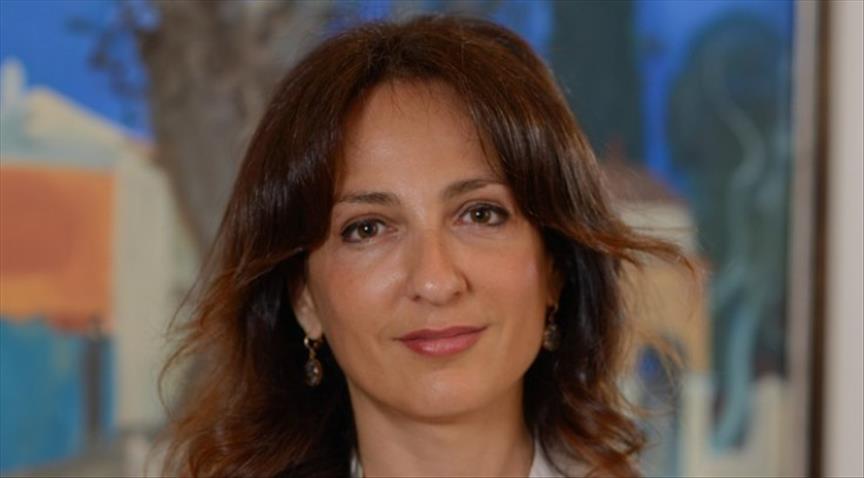The current mechanism that allows Turkish energy companies who generate electricity from renewables to receive feed-in tariffs from the state must continue so that banks can keep financing these projects, according to the vice president of Turkiye Garanti Bankasi AS, the country’s biggest lender by value.
“It would be possible to do this by pulling down the prices and prolonging the maturities for the loans,” Ebru Dildar Edin, the bank’s vice president in charge of project financing, told Anadolu Agency in an interview.
“It is imperative the scheme continues after the 2020 deadline so financing of renewable projects can continue without interruption,” she said.
The Supporting Mechanism of Renewable Energy or YEKDEM offers a feed-in tariff of 7.3 cents per kilowatt hours (kWh) for wind and hydropower projects, 10.5 cents for geothermal facilities and 13.3 cents for solar energy and biomass geothermal plants.
Retail companies assigned by the Energy Market Regulatory Authority (EMRA) are required to purchase the electricity from the manufacturers at the guaranteed price.
The tariffs are currently available for renewable energy projects which will be operational at the latest by year end 2020.
Edin said at the moment Turkish banks are not hesitant in financing the projects, as in their assessment, investors are found to be able to sell the electricity at the guaranteed price and thus pay back the bank loans without difficulty.
“It would be discouraging for both the bank and the investor if the government gives up on this support system now,” Edin said, adding, “It would make them lose trust in new schemes. We would urge for these to go on after 2020 to ensure the balanced and fair growth of the market.”
She suggested that an alternative to prolonging the maturities would be to offer the price guarantees in euros rather than U.S. dollars.
“Financing in euros is less costly now than dollars for Turkish banks,” Edin said. “If the price guarantee is provided in euros, then the banks can also provide the loans in euros.”
Edin said this would enable the costs on the loans to be 1 or 2 percent lower than what is currently offered.
“If we keep in mind the loans have maturities between 7 and 8 years, this amounts to a total reduction of about 16 percent, which is a considerable amount,” she said.
- Bank to finance $5-6 billion for renewable projects
All stakeholders need to make a joint effort so that Turkey can reach 16 gigawatts (GW) and 10 GW of installed capacity by 2030 in wind and solar energy respectively, she said.
“This is in line with the COP21 agreement to combat climate change and the country’s desire to be less dependent on foreign sources. Everybody’s interests lie in the same place,” Edin said.
She emphasized Garanti Bank's aim to finance projects, worth approximately $5-6 billion, to supply about 500-750 megawatts (MW) of installed capacity annually over the next five years.
Garanti was the market leader in project financing in wind energy projects among Turkish lenders with a 35 percent market share, she said, adding that “We aim to preserve this market share in wind.”
The lender has financed 37 solar energy projects in 2016 so far, Edin said. “We believe solar energy will increase its share in the renewable projects in Turkey in the coming period,” she affirmed.
The bank has provided financing worth about $4.5 billion for renewable energy projects in the last 10 years and has a market share of 15 percent in renewables, according to its website.
“We think we will maintain our market share in renewables in the coming period,” Edin said. The financing of renewables, energy efficiency and YEKA projects will continue to be at the top of the list for us.”
The Renewable Energy Resources Area Regulation (YEKA) foresees the creation of large-scale renewable energy regions by allocating both state-owned and private property to investors.
New investments with a large capacity in renewables will be possible in the future with this new regulation,” Edin said. “These are the kind of investments that will help local production develop,” she added.
Edin emphasized future energy investments in Turkey were expected to focus on changing the energy mix.
“We expect natural gas investments to be replaced more and more by renewables. It is a success story that Turkey has lowered the ratio of natural gas investments in the energy mix from the initial 50 percent to 30 percent.” she said.
Approximately $60 billion worth of electricity generation investments have been carried out so far in Turkey, with Turkish banks providing about $30 billion in financing, according to the bank’s website and renewables have about a 60 percent share of this.
- “Energy efficiency must become number one agenda item”
Edin said she expected about 2,000-2,500 MW in total new investments per annum in renewables in the short and medium term in Turkey. About 3,000-4,000 MW of new investments per year are carried out at the moment.
She asserted that energy efficiency has to become the number one item in Turkey’s agenda in the future.
“Investments in energy efficiency have strategic importance in terms of catching the COP21 targets, reducing Turkey’s energy dependency and ensuring sustainable development,” she said.
Edin said it was critical that policy makers play an active role in this because they “have the power to enforce things.”
Need for new investments would gradually subside if energy efficiency is fully achieved, Edin affirmed.
“Before we start loading the bucket from above, we should look to sealing off the hole in the bottom. This is the concept of energy efficiency,” she explained.
By Sibel Akbay
Anadolu Agency
sibel.akbay@aa.com.tr


